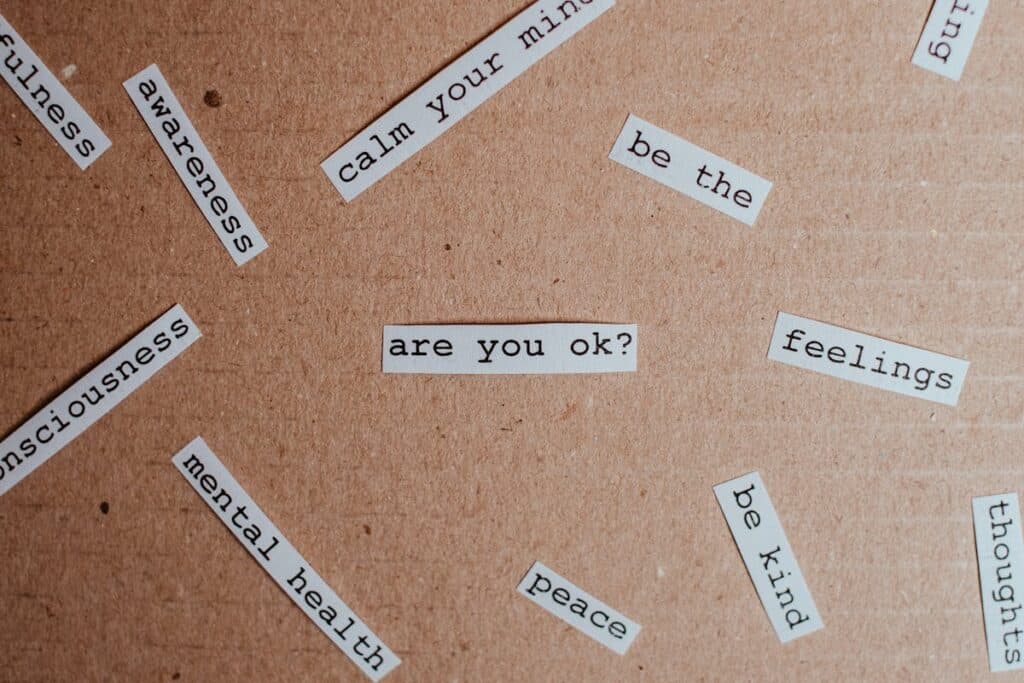Counselling is an intimate journey of self-growth and recovery. It’s an experience that you need to undertake with someone you can trust: a competent and credentialed therapist.
But the process of selecting counsellors in Dublin—or anywhere, for that matter—can feel like traversing a vast and unfamiliar terrain. With patients having too many options and no idea of how to pick a suitable therapist, a mismatch can easily happen.
Working with the wrong counsellor can impair progress and even complicate any distress you’re experiencing. Imagine pouring your heart out to someone who dismisses your concerns, shares confidential details, or pressures you into unnecessary sessions. Such experiences can be disheartening and leave you feeling worse than before you began therapy.
As such, it’s imperative that you take the selection process seriously. We understand that this task can feel daunting, which is why we’ve put together this guide to help you find a counsellor who best suits your needs.
5 Red Flags You Shouldn’t Ignore When Choosing Counsellors in Dublin
While most therapists in Ireland are dedicated professionals, it’s crucial to be aware of potential red flags during your search. Here are five warning signs to keep on your radar to avoid picking a counsellor who won’t prioritise your well-being:
Red Flag #1. Lack of Proper Qualifications
The bedrock of an effective counselling relationship lies in the credentials of your chosen professional. Every credible counsellor in Dublin should be backed by certifications from respected bodies, such as the Irish Association for Counselling and Psychotherapy (IACP). These credentials are not just formal titles but are assurances of the counsellor’s adherence to the highest standards of ethical practice and competence in the field.
It’s also wise to consider whether they hold additional certifications or have undergone specialised training that aligns with your needs or concerns. For instance, if you are grappling with depression, a counsellor certified in cognitive behavioural therapy (CBT) might offer the specialised approach that will resonate with you. Similarly, for issues like anxiety, anger or grief, there are additional qualifications that can distinguish a professional’s expertise in those areas.
Red Flag #2: Unclear Fee Structure
Everything about fees and payments must be clear right from the start. Your counsellor should tell you exactly how much sessions will cost, how often you need to pay, and any other fees you might need to know about.
If things seem a bit fuzzy or they haven’t told you about the counselling costs, that could be a problem. You don’t want to end up surprised by a bill you weren’t expecting, which could make you feel uncomfortable or cause you to lose trust in your counsellor.
So, make sure to ask questions like how you’ll be billed, how often you need to pay, and if there’s a way to pay less if you need to (this is usually called a sliding scale). It’s also good to ask what happens if you miss a session. Getting these details not only helps you budget for your sessions but also shows you how upfront and honest your counsellor is. This lets you focus more on your counselling sessions without worrying about unexpected costs or billing surprises.
Red Flag #3: Inadequate Boundaries
A great therapy session is one where you feel comfortable opening up in a space that’s all about respect and safety. But sometimes, things can go off track, like when sessions happen at odd hours or your counsellor starts talking about other clients they see. These are signs that they might not be keeping things as professional as they should.
When boundaries get blurry, it can make the whole therapy experience less effective and even uncomfortable. Hence, recognising when these lines are crossed is essential.
Effective therapy provides a safe, respectful environment where you should always feel heard without your privacy or comfort being stepped on. If things seem off with how your counsellor is acting, it’s okay to speak up or look for someone who better respects those boundaries.
Red Flag #4: The “One Size Fits All” Approach
When you’re choosing a counsellor in Dublin, watch out for those who apply the same methods across their patients, irrespective of their unique issues and needs. Each person’s therapeutic requirements differ significantly. So, it’s absolutely essential that your therapy plan is flexible and tailored to accommodate your personal journey.
Before you decide on a counsellor, have a clear chat about their treatment plan. It’s also worth asking your prospective counsellor about the therapeutic models they use and how they adjust their approach to address each client’s specific needs.
Remember, therapeutic help shouldn’t be a standardised solution. It needs to be as unique as your life experiences and challenges. The right counsellor will recognise that and adapt accordingly, ensuring that the guidance you receive is uniquely suited to help you in the most effective way possible.
Red Flag #5: Unrealistic Claims or Guarantees
Like there are no magic pills for life’s bigger challenges, be cautious of counsellors who offer instant solutions or promise guaranteed results. Healing and growth through therapy are not overnight processes. They require dedication and effort over time, and each person’s road to progress differs. While a certain level of optimism is healthy, promises made by a counsellor must be realistic and based on professional standards.
A trustworthy counsellor will be honest with you about the therapy they offer. They will discuss the possible benefits, the realistic timeframe, and what it will demand of you. They will also continuously evaluate and adjust your therapy plan as needed, ensuring it aligns with your evolving needs and life changes.
Remember, therapy is a two-way street – your active role and commitment are key ingredients in making it work. Anyone suggesting that success is guaranteed without your input should be approached with caution.
Beyond Red Flags: Qualities of Excellent Counsellors in Dublin
Searching for a therapist in Dublin is not only about avoiding the warning signs. There are also positive qualities to seek that will help you find a counsellor who can provide a positive therapeutic experience.
Effective Communication Style
A counsellor’s ability to communicate effectively is paramount. This includes demonstrating empathy and active listening, ensuring you feel understood and valued in your sessions.
Empathetic: Good counsellors don’t just hear your words; they genuinely listen and understand the emotions behind them. They can reflect your feelings in a way that feels validating and creates a safe space to explore difficult topics.
Active Listening Skills: Pay attention to nonverbal cues like body language and eye contact. Does the counsellor ask clarifying questions to ensure understanding? Do they offer summaries of what you’ve shared to demonstrate they’re engaged with your story?
Specialisation and Experience
As mentioned earlier, each person’s journey through therapy is unique, often requiring a specialised touch. Seek a counsellor with experience or specialisations that align with your needs:
Targeted Expertise: Does the counsellor have experience working with your specific challenges, like anxiety, phobias, or relationship issues? Look for therapists who actively pursue ongoing training and education in their focus areas.
Culturally Competent Care: If your cultural background is important to your experience, consider finding a counsellor who demonstrates cultural sensitivity and understanding.
Therapeutic Approach
The therapeutic approach a counsellor uses is the foundation of their practice, influencing how they understand your experiences and plan your journey through therapy. Here’s how to explore this aspect:
Research Common Approaches: Explore different approaches, such as CBT, psychodynamic therapy, or humanistic therapy. Each has its strengths and focuses.
Open Communication About Methods: During consultations, discuss the counsellor’s preferred approach and ask if it aligns with your goals and expectations. A good counsellor should be able to explain their approach clearly and answer your questions.
Client-Centred Focus
The best Dublin counsellors understand that therapy is a collaborative effort, but the emphasis lies on your unique needs and preferences. Here’s how to identify these therapists:
Your Goals, Your Pace: A client-centred counsellor prioritises your goals and works at a pace that feels comfortable for you. They tailor their approach to fit your needs, not the other way around.
Shared Decision-Making: The counsellor presents therapeutic options and explains their potential benefits. However, the final decision on which approach to use rests with you.
Openness to Feedback: A good counsellor is open to feedback throughout the therapeutic process. They actively listen to your concerns and adjust their approach to ensure it aligns with your evolving needs and preferences.
By actively seeking these qualities, you can increase your chances of finding a therapist in Dublin who provides a supportive, effective, and empowering therapeutic experience.
In conclusion, choosing the right counsellor is as pivotal as the therapy itself. It’s the foundation for a safe, supportive space where you can explore your challenges, develop coping mechanisms, and ultimately reach a place of growth and healing. Being able to identify the red flags we’ve discussed is tantamount to ensuring your mental health journey is positive and productive.
Remember that therapy is most effective when it feels like a good fit. So, don’t hesitate to ask questions during consultations and trust your gut instinct. The ideal counsellor will be someone you feel comfortable with, someone who listens attentively, and someone who tailors the therapeutic approach to your unique needs and goals.
Therapy is an investment in yourself, and by taking an active role in choosing the right counsellor, you’re setting yourself up for success. Keep in mind, the journey towards mental well-being is unique, and with the proper support, you can achieve lasting positive change.
Feeling lost in the sea of counsellors in Dublin? Access Counselling Clinic can help. We offer a personalised approach to therapy, matching you with a counsellor who understands your specific needs. Don’t waste time wading through options. Contact us today on 015240708 or click here and let’s get you started on a brighter tomorrow.
Royalty-free images supplied from Pexels as part of SEO service from 3R





